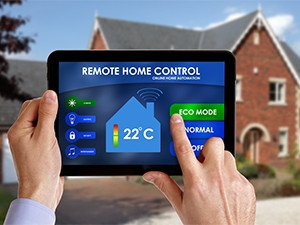
By 2020, global consumer spending on smart home services will reach $100 billion, well over twice the estimated spend for this year, at $43 billion.
This is according to Juniper Research's recent study, which notes the services include entertainment, health, energy and home automation.
According to Juniper, entertainment services such as Netflix and Spotify are playing a key role in boosting the smart home market size, driven by a universal appeal, and the low cost of services.
The report found numerous home automation subscription services, such as AT&T's Digital Life, have struggled to address the mass-market. Incremental unit-by-unit purchases, to personalise the home, are therefore the most likely entry point for the consumer.
However, vendors such as SmartThings and Nest have successfully added subscription services to their hardware sales in order to generate 'lifetime value'.
Juniper says emerging smart home segments, such as home automation, are expected to begin catching up, driven by falling hardware costs and increased consumer awareness.
Steffen Sorrell, senior analyst at Juniper Research, says enabling services to generate recurring revenue on top of smart home hardware will be crucial for realising the projected long-term success of this market.
However, tapping the developer community to innovate and address the wider market remains an issue, he adds.
According to an Ericsson report, the complexity of connected home devices and equipment is one of the biggest reasons for the slow uptake of the concept of the truly connected home.
There are dozens of connected services available to help consumers save time and preserve the sanctity of home life, says the report. However, the frequent use of these services involves a great deal of equipment and different devices, all needing a number of cables and apps, which results in added complexity, it adds.
Anton Vukic, sales director of Phoenix Distribution, says South Africa needs to overcome several barriers before the connected home dream becomes a reality.
Lack of ubiquitous broadband in SA is one of the biggest barriers to the connected home, notes Vukic.
The connected home goes beyond a collection of individual services to the home; it must be developed and connected as a totally integrated platform, he says.
Vukic points out broadband, economic weakness and uncertainty, load-shedding, lack of standardisation, lack of consumer trust, and absolutely no regulation, are all obstacles.
According to Nick Caripis, founder and MD of BNC Technology, as connectivity becomes a way of life, smart homes will soon become the norm among the high-end residential property owners in SA, especially since the number of dollar millionaires has climbed close to 10% since 2007.
South African home buyers and those who are planning to renovate should start factoring in potential home automation for the future, especially now that fibre-optic connectivity is being implemented, adds Caripis.
Share